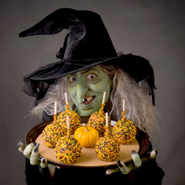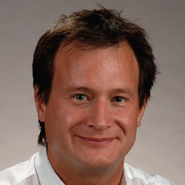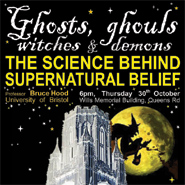Where do our supernatural beliefs come from? Why are such beliefs common in today’s modern scientific age? This will be the focus of a free Halloween public lecture at Bristol University this week [Thursday 30 October].
Bruce Hood,
Professor of Developmental Psychology in the Department of Experimental Psychology at the University,
will investigate the science behind supernatural belief and the nature of things that - many people believe - go bump in the night.
Professor Hood, talking about the lecture, said: “One answer to where supernatural beliefs come from is that culture is so rich with story telling that it seems obvious that we believe what others tell us. This is why many attribute the strength and spread of supernatural thinking - such as a belief in ghosts, ghouls and other Halloween favourites - to the indoctrination of children by adults.
"
Another reason may be is that humans have a natural predisposition towards believing in such things; ideas only transmit well when they resonate with what people believe might be possible in the first place. In this lecture, the natural reasoning processes of very young children are re-examined, and the possibility that our minds are predisposed to hold such beliefs is considered as an alternative explanation."
The public lecture, entitled, ‘Ghosts, ghouls, witches and demons: The science behind supernatural belief’, takes place at 6 pm on Thursday, October 30 in the Reception Room, Wills Memorial Building, Queen’s Road, Bristol. The lecture is free but must be booked by emailing B-N@bristol.ac.uk to reserve a place. The lecture has been organised by Bristol Neuroscience.
Dr Anne Cooke, Facilitator and Communications Manager for Bristol Neuroscience, said: “
This is the first time Bristol Neuroscience has held a public lecture - something we hope to establish as an annual event to enable and encourage dialogue about neuroscience between the general public and those who carry out research on the brain.
“
To get into the spooky spirit of things the already vaulted splendour of the Wills Memorial Building will be dressed for the occasion with some suitably Halloween-themed decorations, and maybe even a ghost or two of its own. Thanks to the generosity of the Experimental Psychology Department, there will also be free wine at the reception following the talk. We very warmly invite everyone, regardless of scientific background, to join us and we very much hope everyone attending will take the opportunity to meet and talk with Professor Hood and other members of Bristol Neuroscience.”
Where do supernatural beliefs come from?


Professor Bruce Hood

Press release issued: 28 October 2008
Where do our supernatural beliefs come from? Why are such beliefs common in today’s modern scientific age? This will be the focus of a free Halloween public lecture at Bristol University this week [Thursday 30 October].
Further information
Professor Hood is currently the Director of the Bristol Cognitive Development Centre in the Experimental Psychology Department at the University of Bristol. He has been a research fellow at Cambridge University and University College London, a visiting scientist at MIT and a faculty professor at Harvard. He has been awarded an Alfred Sloan Fellowship in neuroscience, the Young Investigator Award from the International Society of Infancy Researchers, the Robert Fantz memorial award and recently voted to Fellowship status by the society of American Psychological Science. He currently hold grants from the Leverhulme Trust, the Medical Research Council, the Esmee Fairbairn Foundation and the Economic and Social Research Council to fund research into the origins of supernatural beliefs, the development of face and gaze processing, the development of inhibition and general cognitive development.
Please contact
Anne Cooke for further information.